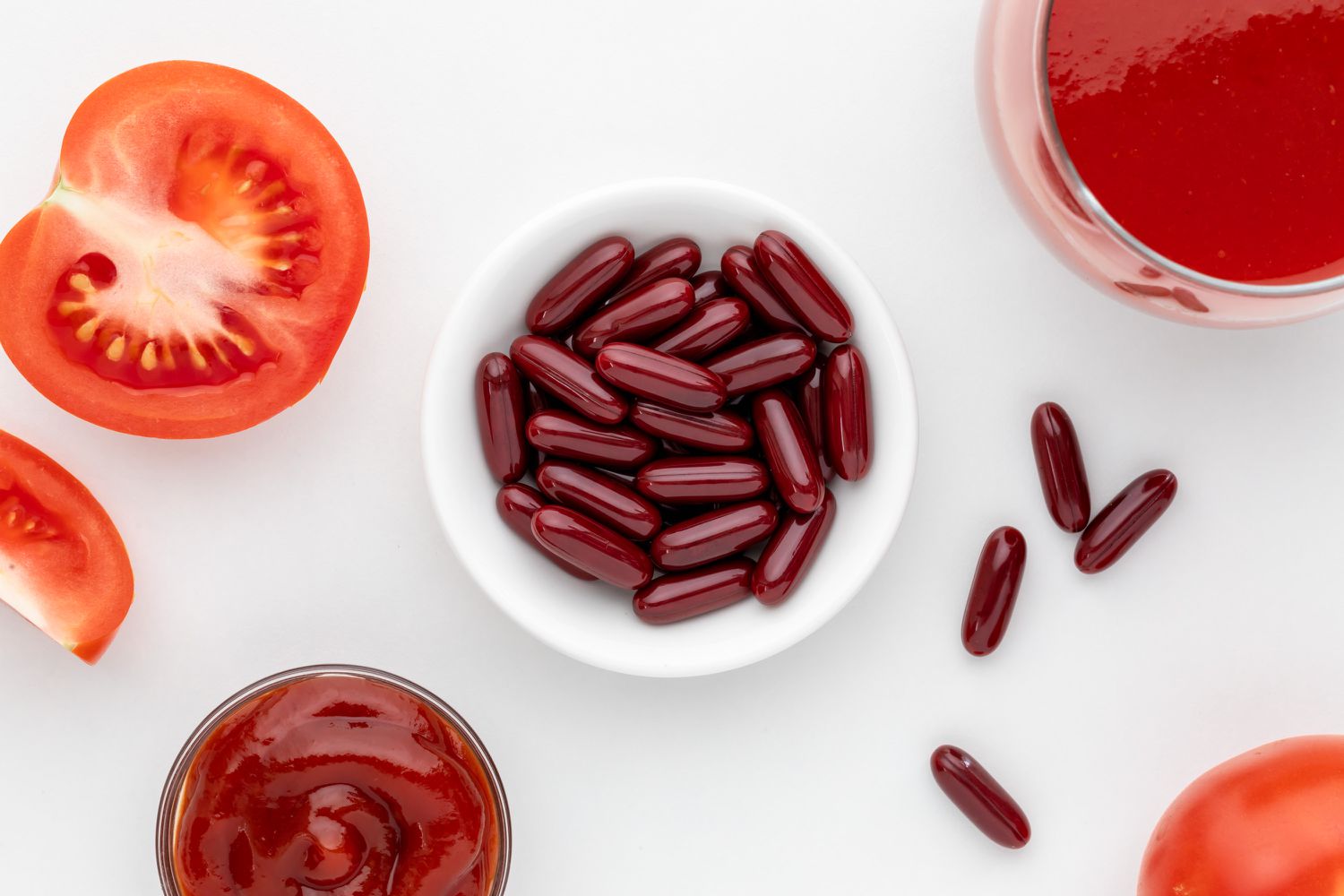- Empty cart.
- Continue Shopping
The Importance of Lycopene for Prostate Health

Prostate health is a topic of growing concern, especially as men age. While various factors contribute to maintaining a healthy prostate, one compound that has garnered attention in recent years is lycopene. Found primarily in tomatoes but also in other fruits and vegetables, lycopene has been studied for its potential benefits for prostate health.
What is Lycopene?
Lycopene is a carotenoid, a type of pigment that gives fruits and vegetables their vibrant colors. It’s most commonly found in tomatoes, but it’s also present in watermelons, grapefruits, and papayas. Beyond its coloring properties, lycopene is a powerful antioxidant that has been studied for its potential health benefits, including its role in prostate health.
Antioxidant Properties: A Shield Against Free Radicals
One of the primary ways lycopene contributes to prostate health is through its antioxidant properties. Free radicals are unstable molecules that can damage cells and contribute to aging and diseases like cancer. Antioxidants like lycopene neutralize these free radicals, reducing oxidative stress and potentially lowering the risk of prostate issues, including prostate cancer.
Lycopene and Prostate Cancer
Several studies have explored the relationship between lycopene and prostate cancer, although the results are not entirely conclusive. Some research suggests that a diet rich in lycopene can lower the risk of developing prostate cancer or slow the progression of existing cancer. However, more research is needed to confirm these findings and understand the mechanisms involved.
Anti-Inflammatory Effects
Inflammation is often a contributing factor to various health issues, including those related to the prostate. Lycopene has been shown to have anti-inflammatory properties, which could potentially help in reducing inflammation in the prostate gland, thus promoting overall prostate health.
Bioavailability: The Cooking Advantage
Interestingly, the bioavailability of lycopene increases when tomatoes are cooked. This means that processed tomato products like tomato sauce or tomato paste may offer more health benefits than raw tomatoes. So, incorporating cooked tomato dishes into your diet could be a practical way to boost lycopene intake.
Dosage and Safety Considerations
While lycopene appears to offer several benefits for prostate health, it’s essential to approach its consumption sensibly. Excessive intake could lead to lycopene accumulation in the body, although no severe side effects have been reported. As always, it’s advisable to consult a healthcare provider for personalized recommendations.
In Conclusion
Lycopene, with its antioxidant and anti-inflammatory properties, presents a promising avenue for promoting prostate health. While more research is needed to establish definitive links between lycopene and reduced risk of prostate issues, the existing evidence is encouraging.
Incorporating lycopene-rich foods like tomatoes into your diet can be a simple yet effective way to support prostate health. However, it’s crucial to remember that lycopene is not a standalone solution but should be part of a balanced diet and overall approach to wellness.
By understanding the potential benefits of lycopene, men can take a proactive step in maintaining their prostate health, adding a colorful and tasty component to their preventive care routine.








